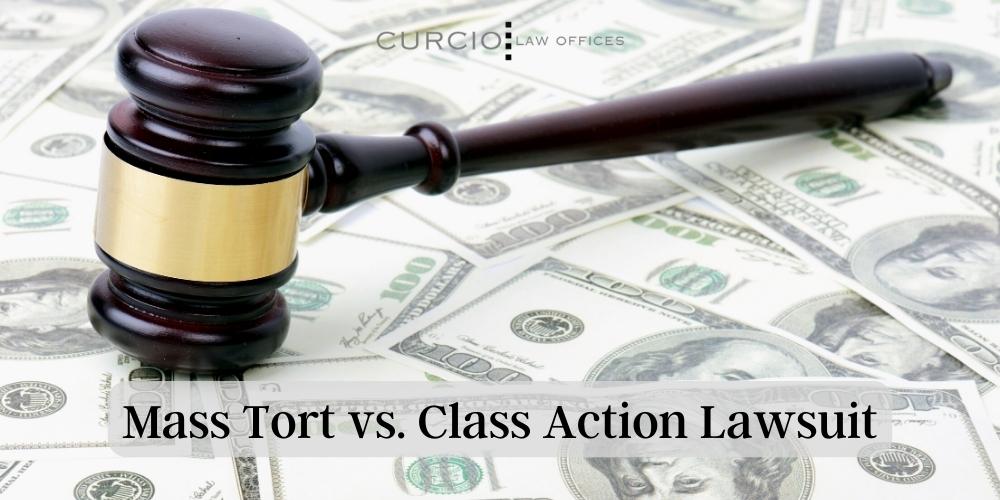Debunking Class Activity Claims: A Closer Take A Look At Lawful Process
Course activity lawsuits can be daunting and intricate, commonly shrouded in a shroud of mystery for those unknown with the legal process entailed. From recognizing the requirements for course action eligibility to the role of course agents, and from the procedure of course certification to the resolution of these suits, we will unwind the details and lost light on the internal operations of this lawful system.
Understanding Course Activity Legal Actions
Recognizing Course Activity Legal action needs an extensive examination of the legal procedures associated with cumulative lawsuits. Course activity lawsuits are a kind of lawful action where a team of people with comparable insurance claims or complaints collaborate to start a claim against a common defendant. This type of lawsuits allows people with restricted resources to collectively look for justice, as it incorporates the strength of multiple specific insurance claims right into a solitary legal activity.
The procedure starts with the identification of a lead plaintiff or class rep that files the first complaint on behalf of the entire class. The court then determines whether the case satisfies the needs for course certification, that include commonality, numerosity, typicality, and adequacy of depiction. If accredited, the court alerts potential course participants, offering them a chance to opt-out if they wish to pursue their insurance claims independently.
As soon as the course is certified, the litigation continues via numerous phases, including discovery, motion practice, and, if required, test. The end result of the suit can lead to a judgment or a negotiation, which is binding on all course participants unless they pick to opt-out. Course activity suits can include a variety of lawful concerns, such as consumer defense, protections fraud, employment discrimination, and ecological harm.
Comprehending the subtleties of course action claims is essential for both offenders and complainants included in collective lawsuits. It requires a comprehensive understanding of the lawful requirements for qualification, the civil liberties and commitments of class participants, and the possible advantages and risks related to protecting or going after against class action cases.
Identifying Class Activity Eligibility
To identify whether a lawful activity qualifies as a course action lawsuit, certain requirements need to be met. These requirements are developed to make certain that the instance can appropriately stand for the interests of a large team of individuals that have actually experienced comparable injury or have been affected by the very same issue. The essential consider recognizing class activity qualification is the visibility of a common question or problem that impacts all possible class members.
Firstly, a course action lawsuit requires numerosity, which implies there have to be a substantial variety of prospective course participants included. This guarantees that a course activity is an effective way to settle the insurance claims of a huge group of people, instead of having everyone file a specific claim.
Second of all, there must be commonness among the claims of the potential class participants. This means that there should be a typical inquiry of regulation or fact that is central to the instance. If each possible class participant's case is one-of-a-kind and unrelated to the others, a course activity may not be appropriate.

The Role of Class Rep
Course reps play an important function in course action suits by standing for the interests of the entire course. These individuals are picked from within the course to act as the general public face of the claim and are liable for choosing in pop over to this site support of all course members. The role of class representatives includes various duties and tasks throughout the legal process.
Among the primary duties of class representatives is to provide information and aid to their fellow course participants. They function as a factor of get in touch with and interaction in between the course participants and the attorneys representing them. This consists of maintaining the class members informed about essential updates, answering their inquiries, and dealing with any problems they might have.
Class agents likewise have the duty to actively take part in the lawsuits procedure (BioVie class action lawsuit). This includes functioning carefully with the attorneys to develop lawful methods, gathering proof, and giving testimony if essential. They need to be actively associated with all aspects of the situation to make sure that the most effective interests of the entire class are stood for
Furthermore, course reps are responsible for approving settlements or various other resolutions gotten to in the suit. They should carefully evaluate the terms of the settlement and make a choice that is in the most effective passion of the whole class. This decision-making procedure requires careful factor to consider and examination with the course members.
The Process of Course Certification
The process of certifying a course in a class action lawsuit entails a complete examination of particular criteria to figure out if the case fulfills the needed demands for class certification. Course certification is a crucial action in the litigation process as it establishes whether a lawsuit can continue as a class action, enabling a huge group of individuals with comparable insurance claims to be stood for jointly by one or a few people.
To obtain course certification, the complainant must demonstrate that the recommended class satisfies specific prerequisites. Typicality needs that the cases or defenses of the class representatives are common of those of the class. Adequacy of depiction guarantees that the course representatives will relatively and adequately protect the passions of the course.
If the proposed class fulfills the essential needs,The court will look at these criteria and the plaintiff's evidence to identify. The court may additionally take go to the website into consideration other elements, such as whether a course activity is the exceptional method to fix the disagreement and whether the course is sufficiently natural.

As soon as the court gives course certification, the legal action can continue as a course activity, enabling the plaintiffs to collectively seek alleviation and possibly obtain a judgment or negotiation that profits the whole course.
Solving Course Activity Legal Actions
Once class qualification has been provided, the following action in fixing a course activity legal action is to navigate the process of litigation or negotiation negotiations. Lawsuits refers to the lawful procedures in court, where the complainant's lawyer offers proof and arguments to support their claims, and the offender's lawyer counters with their own evidence and debates. This procedure can include numerous phases, such as pretrial motions, exploration, and trial. Throughout pretrial motions, both celebrations may submit activities to reject the situation or narrow down the concerns in opinion. Discovery enables each side to collect evidence and details from the other event via techniques such as document requests, interrogatories, and depositions. Ultimately, if the case proceeds to test, both celebrations provide their instance prior to a judge or court, who will certainly then decide the result.
On the other hand, negotiation arrangements include discussions in between the celebrations to reach an equally appropriate resolution without going to trial. Negotiation offers might be made at any type of stage of the litigation procedure, and if both parties agree, a negotiation agreement is reached.
Final Thought
To conclude, class action legal actions play an important role in offering justice and settlement to huge teams of individuals that have actually been damaged by the very same entity. By licensing a course and designating class agents, the legal process ends up being extra effective and easily accessible for the plaintiffs. Dealing with these claims can be a complicated and prolonged process, yet it is necessary in holding corporations liable for their activities and making certain reasonable outcomes for all impacted events.
From recognizing the standards for class action eligibility to the duty of course reps, her explanation and from the process of course qualification to the resolution of these suits, we will certainly untangle the details and lost light on the internal operations of this lawful mechanism. The vital factor in identifying course action qualification is the visibility of a common concern or problem that influences all potential class participants.
If each possible course member's claim is unrelated and distinct to the others, a course activity might not be appropriate.
Class agents play a critical duty in class action suits by representing the rate of interests of the whole course.As soon as course accreditation has been approved, the following action in dealing with a class action claim is to browse the procedure of lawsuits or negotiation arrangements.
Comments on “Future FinTech Class Action Lawsuit: Understanding Your Rights”